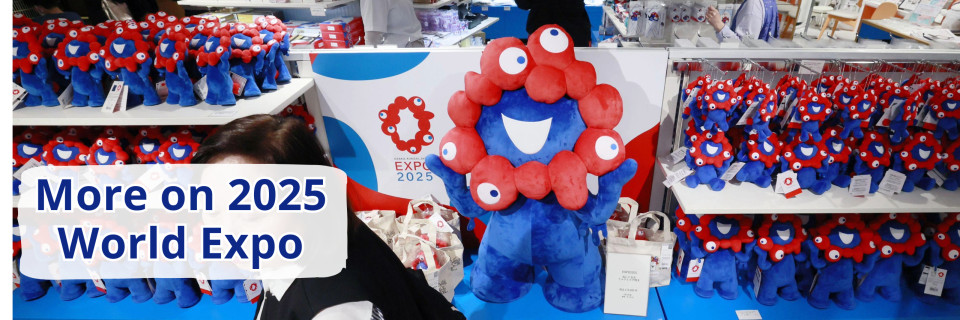Toyota group company Toyoda Gosei Co. will trial power-generating smart wear fitted with ultrathin solar cells at the upcoming World Exposition in Osaka, as it seeks to bring the technology one step closer to commercialization.

Supplied photo shows power-generating smartwear fitted with ultrathin solar cells to be trialed at the World Exposition in Osaka. (Kyodo)
The proof-of-concept experiment at the expo, which opens on April 13, aims to assess durability and other aspects of the vests, which feature four perovskite solar cells manufactured by Kyoto University startup EneCoat Technologies Co. attached to their back.
Toyoda Gosei, whose core business is manufacturing auto parts, plans to launch the product in limited quantities within the year based on public response.
The prototype vests will be donned by expo staff working at a private sector pavilion, with the generated electricity expected to power small devices such as wearable neck fans.
Toyoda Gosei has been jointly developing the smart wear with EneCoat Technologies since investing in the company in 2023. Technology from textile manufacturer Seiren Co. enabled the wireless attachment of the solar cells to the clothing, while Toyoda Gosei developed the energy storage unit.
Potential future uses of the technology include powering built-in heating and cooling systems and integrating sensors to monitor the wearer’s health.
Perovskite solar cells, which cost less to manufacture than conventional solar panels, are also flexible, making them suitable for use on a wide range of surfaces, including high-rise building walls and glass windows.
Related coverage:
Osaka Expo rejects request for more prayer rooms due to limited space
Osaka Expo: Japan requests Taiwan pavilion be labeled as privately operated
Ticket presales, pavilion completion slow 1 month before Osaka Expo



AloJapan.com